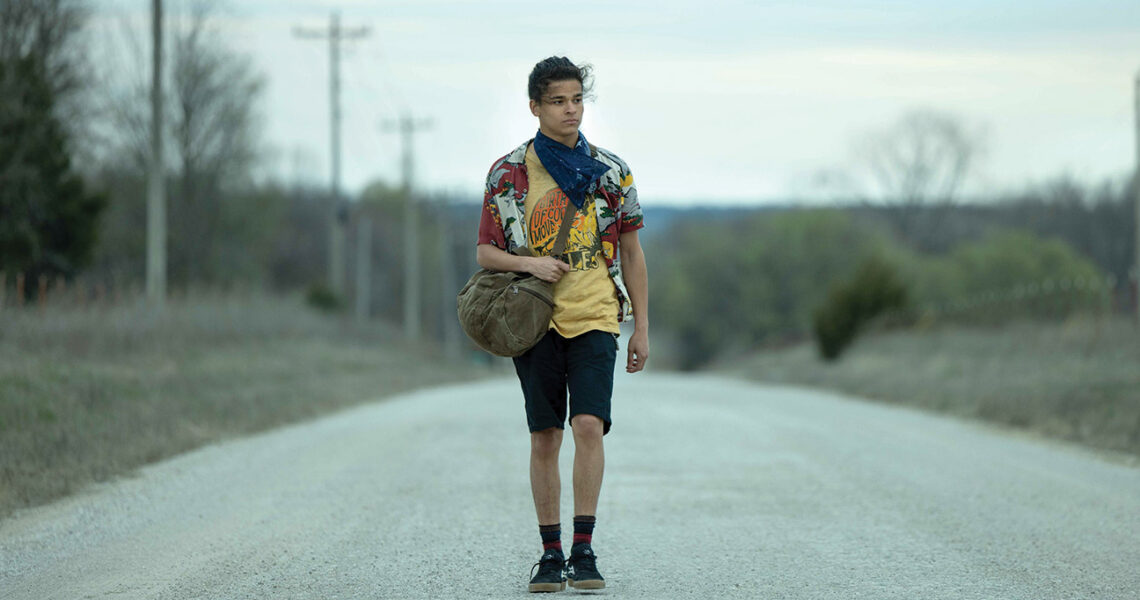D’Pharaoh Woon-A-Tai Reflects on the Impact of ‘Reservation Dogs’ on Indigenous Storytelling
D’Pharaoh Woon-A-Tai wouldn’t let an interview about his Emmy nomination go by without praising one of his Reservation Dogs co-stars: “I want to add one thing — there’s a project that Devery Jacobs did with director D.W. Waterson, an amazing film called Backspot,” he tells THR. “It’s a sports film about cheerleading. I want to shout that out, because she created an amazing project.”
Woon-A-Tai, who earned his first Emmy nomination for lead actor in a comedy for the final season of the FX on Hulu series, also talked with THR about his time on Reservation Dogs and what he sees of himself in his character Bear.
Rewatching some of the final episodes, it really struck me how much Bear had grown during the course of the show. What was it like portraying that, and did it mirror your experience at all?
What was interesting was when I first got the audition, I had two scenes — four pages — and right off, just in those two scenes, I really connected with Bear. I hadn’t even read the whole script yet. The writers room was all Indigenous, and they knew that they wanted to tell their stories, and in telling their own stories, they told the stories of a lot of other Native kids out there as well, me being one of them. I related to Bear right off the bat, and I see a lot of similarities within myself, within my cousins and my nephews, and with family and friends. There are definitely a lot of Bears in the world and in what we call Indian Country, just like there are Willie Jacks everywhere or Elora Danans or Cheeses everywhere. So I felt like I was really rolling with that Bear as well, and to see his arc was very beautiful. We’re two different people — I grew up in Canada, in a big city, not a reservation community in Oklahoma. So that’s very different, but in the writers telling their stories, they told my story as well.
Can you recall any moments that were particularly surprising to you while making Reservation Dogs?
Everything was surprising. First of all, I came on the project very early, and they told us it was just going to be a limited series. So that’s what I was expecting [going in], and then we didn’t know if we were going to get picked up. But reading the script, and creating what we created on the first episode, [I knew] that it was going to be legendary for our community. It was going to be something that we can uphold and claim as ours. I didn’t know how it would sit with mass audiences, but as much as it is an Indigenous story, it’s also very much a human story. That’s why so many non-Indigenous people can relate to it — as much as we’re Native, and we’re telling our story, we’re also humans, and a lot of people can relate to Bear.
You had some of the most purely comedic scenes in the show with Dallas Goldtooth, who plays the spirit. Can you talk about playing those?
That was cool. First of all, he’s such an amazing, incredible actor. He’s been working forever with Sterlin Harjo, the showrunner, since back when Sterlin and all these guys were just starting from scratch, making skits on YouTube. Every single time I worked with him, he threw in a lot of personal lines, a lot of improv. One thing that was beautiful about Reservation Dogs is sometimes they let you run with it.
The show ends with everybody moving into the next phase of their lives. I’m curious if you’ve thought about what Bear might be doing after we last see him onscreen.
I feel like Bear is going to stay in Oklahoma. He’s kind of seen what it’s like on the other side — he saw what he thought he wanted, and [it turns out] he didn’t want that. And I feel like what he came to realize, and will continue to realize, is that it’s the community that is healing him. The guilt that he had for Daniel’s death, maybe even personally feeling like he may have been responsible — he’s realizing that he doesn’t need to run away from his community. His community is really the one that’s healing. I don’t know what’s happening with Bear and Jackie [Elva Guerra] — that’ll be interesting. (Laughs.) But I feel like he’s staying in Oklahoma.
This story first appeared in an August stand-alone issue of The Hollywood Reporter magazine. To receive the magazine, click here to subscribe.

